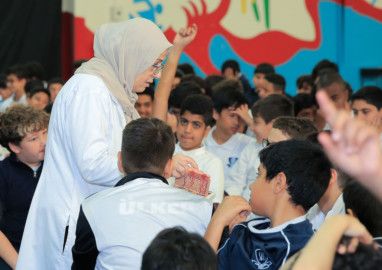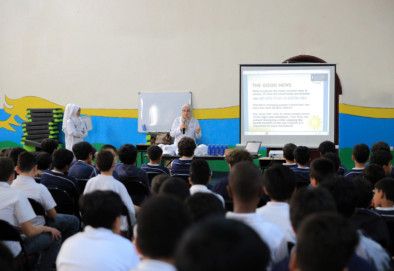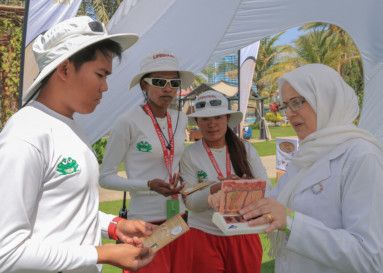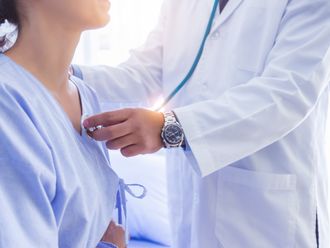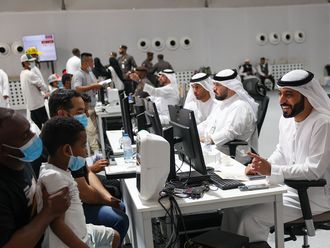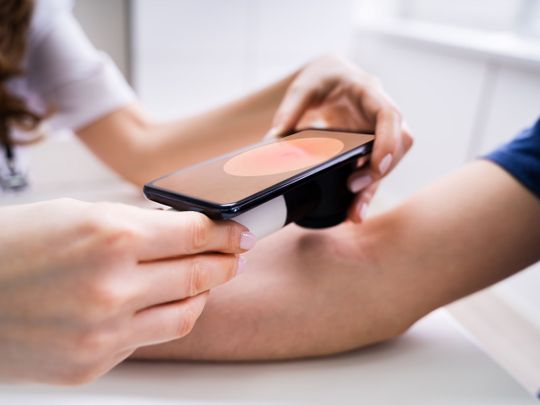
- Friends of Cancer Patients (FOCP) promotes a culture of skin health raising awareness on risks.
- Early detection and treatment options early detection is key to successful treatment of the condition.
- Skin cancer is also almost fully curable if detected early.
Sharjah: With more than 1.5 million new cases estimated in 2020, skin cancers are the most common groups of cancers diagnosed globally, according to the World Health Organisation (WHO).
The condition is also almost fully curable if detected early and prevention is far easier than many other forms of cancer.
Yet, skin cancer remains a major public health concern worldwide, and the UAE is no exception.
Risk of sun damage
According to the Cancer Incidence In United Arab Emirates Annual Report Of The UAE - 2019, skin cancer is one of the five most common cancers among UAE population in both genders. With high temperatures and year-round sunshine, the risk of sun damage is particularly high in the UAE, making skin cancer prevention and early detection all the more critical.
As part of raising awareness of the disease in May, annually recognised as Skin Cancer Awareness Month, the Friends of Cancer Patients (FOCP) is taking an active role in promoting skin cancer awareness and prevention in the UAE through various initiatives such as public awareness campaigns, workshops, and seminars.
Understanding skin cancer
Skin cancer can develop anywhere on the body, but it usually occurs on areas exposed to sunlight, like the face, neck, arms, and legs. There are three main types of skin cancer: b asal cell carcinoma, squamous cell carcinoma, and melanoma.
Basal cell carcinoma often looks like a shiny bump or red, scaly patch. Squamous cell carcinoma may appear as a rough, scaly patch or a raised bump that bleeds. Melanoma is the most dangerous type and can show up as a new or changing mole.
Aisha Al Mulla, Director of FOCP, emphasised on the focus needed to raise awareness about different symptoms of skin cancer, with a particular focus on promoting early detection.
“At FOCP, we are regularly organising events and campaigns to educate the public about the importance of sun safety and regular skin checks, as well as the signs and symptoms of various types of cancer. It’s important to pay attention to changes on your skin, like new growths or changes in the appearance of existing moles. Seeing a dermatologist or healthcare provider promptly can lead to early detection and successful treatment, improving outcomes for those affected by skin cancer,” she said.
Early detection and treatment options
Detecting skin cancer early is crucial for successful treatment and improved outcomes. Check your skin once a month for any new or changing moles, freckles, or growths to identify potential signs of skin cancer. People at high risk of skin cancer should get regular screenings by a dermatologist, who may use techniques like dermoscopy or total body photography.
Treatment options depend on the type and stage of skin cancer, ranging from surgical removal of early-stage cancer to radiation therapy or chemotherapy for advanced cases. Immunotherapy and targeted therapy are newer treatments that stimulate the immune system or target specific proteins in cancer cells.
Role of sun protection in preventing skin cancer
Exposure to UV radiation from the sun or tanning beds damages the DNA in skin cells and is one of the main reasons for increasing the risk of skin cancer.
Even on cloudy days, UV radiation can still penetrate the skin. Practice sun safety, regularly check your skin, and seek medical attention promptly if you notice any changes. Use sunscreen with an SPF of at least 30, wear protective clothing, seek shade during peak sun hours, and avoid tanning beds.
FOCP promotes the importance of sun protection to reduce the risk of skin cancer. The society also encourages regular skin checks and seeking medical attention for any changes. Skin cancer is highly treatable when detected early, but it can be deadly if left untreated. FOCP’s efforts to raise awareness and promote sun safety will hopefully help reduce the incidence of skin cancer in the UAE and improve outcomes for those affected.


